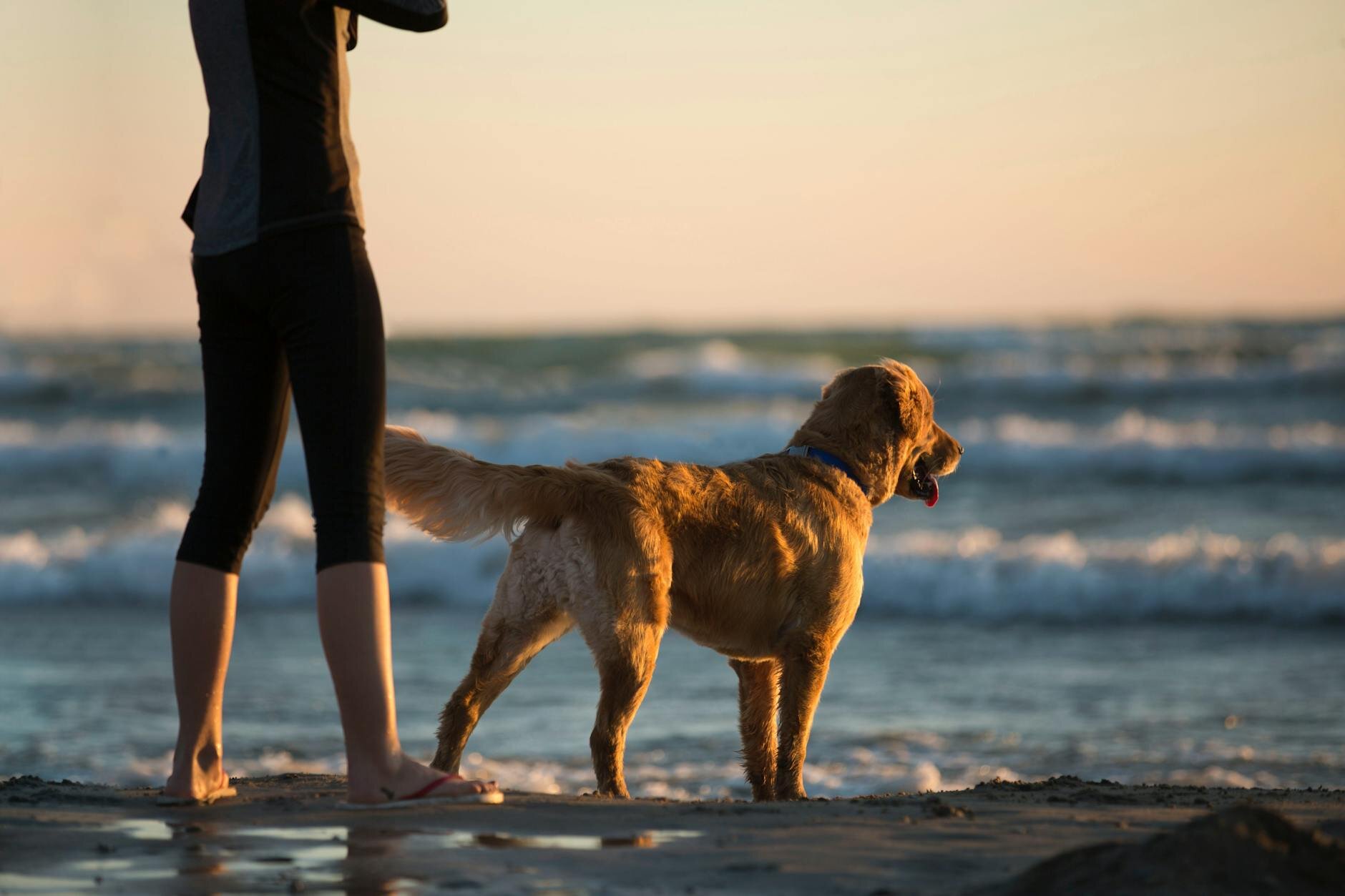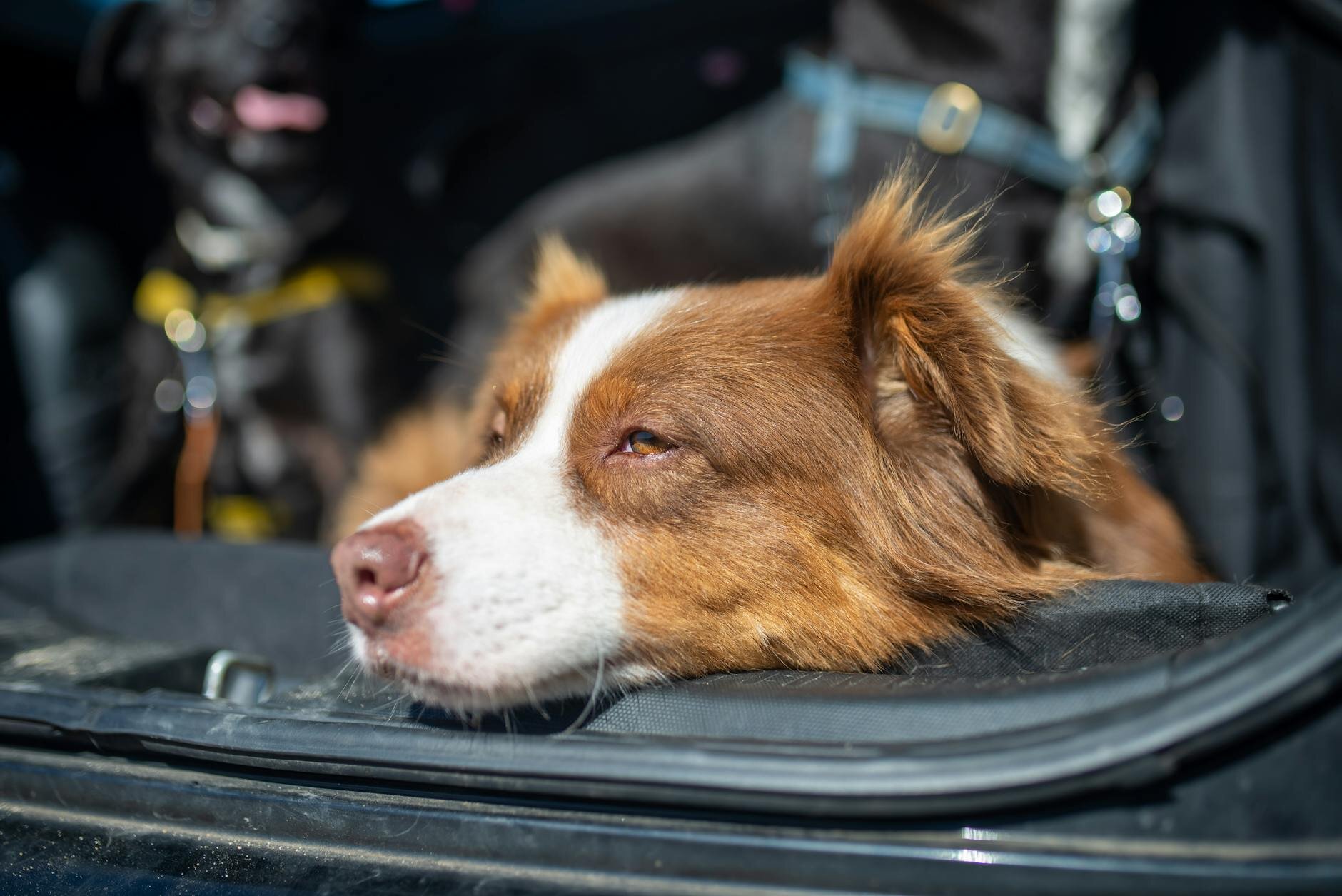Last Updated: 13/10/2025
Camping With Your Dog: An Australian Vet's Guide
Ready to take your dog camping? Our Australian vet's guide covers everything you need. From choosing the right spot and essential vaccinations to parasite prevention, car travel tips, and a complete packing checklist for a safe and happy adventure.
Author: Dr Angie Armstrong BVSc
Reading Time: 5 minutes - short read
With more and more Australians packing up the car and heading for the great outdoors, it's no surprise that many of us want our four-legged family members to join in on the adventure. Taking your dog camping can be an incredible bonding experience, creating memories that will last a lifetime.
However, a successful trip with your pooch requires a little more than just grabbing the tent and hitting the road. A bit of forward planning is key to ensuring the experience is safe, stress-free, and fun for you, your dog, and your fellow campers. To help you prepare for your next getaway, we've put together a handy guide covering everything you need to know for a smooth and enjoyable camping experience for the whole family!
How to choose a dog-friendly destination

The first thing you want to confirm is that you are allowed to take your pooch to the campground you are staying at. Not all campgrounds are dog friendly, and some will only allow dogs out of peak times. There is also a limit on the number of dogs you are allowed at certain sites so be sure to check the fine print when booking!
Dogs are also not allowed in National parks so do take this into account when choosing your camping destination and especially if you are deciding to embark on some hiking adventures with your furry companion!
Essential vaccinations and identification

Verify your dog is up to date with their vaccination. Some campgrounds will ask to see proof that your pooch is currently up to date with their vaccinations. You can either take their vaccination booklet with you, or a certificate from your vet; alternatively they may ask for proof of vaccination via email before your arrival.
Do be aware that vaccinations do take a while (approximately 2 weeks) before they are effective so don't leave vaccinating them until the last minute before travelling!
Some of the more common infectious diseases we vaccinate against are Kennel cough and Parvovirus.
Ensure your pet's microchip details are up to date in case you become separated from them and ideally have a collar with an identifiable tag or consider a gps tracker or smart tags.
For more information, read through our Vaccination Guide for Puppies and Dogs.
Protecting your dog from ticks and parasites

Take into account that your travel destination may require extra protection for your dog that you may not usually use, for example paralysis ticks. Paralysis ticks are venomous and will quickly cause paralysis and even death if left untreated. Paralysis ticks are commonly found on the East coast of Australia.
For more information have a read of our article: Tick Paralysis in dogs and cats.
There is also another tick borne disease that you should be aware of called Ehrlichiosis, this is especially if you are travelling to Northern Western Australian or the Northern Territory.
For further information read our article Everything you need to know about Ehrlichiosis and Flea, tick and worm prevention for dogs.
Recommended parasite preventatives
Tips for a safe and comfortable car trip

Ensuring your dog is a happy traveller is crucial for a smooth start to your holiday. If your dog isn't used to car journeys or is prone to motion sickness, a few short practice trips before the big day can help ease any anxiety.
For dogs who struggle with car travel, anti-anxiety products can help reduce the symptoms of motion sickness. It's also a good idea to avoid feeding your dog for at least two hours before you set off.
Safety is paramount, so always ensure your dog is securely restrained with a suitable travel harness or booster seat. For longer drives, plan to stop every few hours to give your dog a chance to stretch their legs, have a drink of water, and go to the toilet.
For more information, read through our guide to How to Cure Car Sickness in Dogs, and our Top Tips for Travelling with Your Dog.
What to pack for your dog

A well-packed bag is essential for a successful camping trip with your dog. Planning ahead ensures you have everything you need to keep them comfortable, safe, and happy.
- Sleeping Arrangements: Plan where your dog will sleep and ensure it is a safe and secure space.
- Restraints: Most campsites require dogs to be on a lead at all times. A long lead and peg system can give your dog a bit more freedom to explore while remaining safely tethered.
- Food and Water: Store your dog's food in a secure, airtight container to keep it fresh and safe from inquisitive wildlife (and your own dog!). Collapsible bowls and water bottles are a fantastic space-saving option for food and water on the go.
- Comfort and Warmth: You can never have too many towels for a wet or muddy dog. If you're camping in a cooler climate, be sure to pack a coat or jumper to keep your dog warm. For warmer weather, ensure there is always a shady spot for your dog to rest and cool down.
Planning for safety and emergencies

It is always a good idea to check out where the closest vet is to where you will be staying in case unexpected veterinary attention is required!
Consider taking a Pet First Aid Kit with you which may come in handy for minor incidents that don't require immediate veterinary care.
The Pet First Aid Kit
Whether you're at home, travelling, or on an outdoor adventure, this portable and lightweight kit provides peace of mind. It contains essential supplies for common injuries, including saline for cleaning wounds and easy-to-use bandages. Crucially, it also includes specialised items for Australian conditions, such as tools for tick removal, a thermal blanket to manage shock or overheating, and a snakebite instruction card, making it a must-have for any responsible pet parent.
Dog camping essentials checklist
- Travel Food Bowl and Travel Water Bowl
- Collar with ID tag
- Lead and Walking Harness
- Car restraint device- harness/seat belt/booster seat/carrier
- Favourite Toy
- Poop Bags
- Parasite Protection - up to date and additional if required
- Comfortable Bed
- Towel and Grooming Products
- Any Prescription Medications
- Calming Aids if required
- Pet First Aid Kit
Camping with your canine companion can create lasting memories and is a fantastic way to bond. The key to a successful and stress-free trip lies in being prepared.
By following these tips - from ensuring your destination is pet-friendly and your dog's health needs are met, to packing all the essentials - you're all set for a safe and enjoyable adventure in the great outdoors. Happy camping!
Articles recommended for you
Our vet authored guide to the benefits of feeding your dog fresh food plus tips and advice for introducing it into their regular menu.
See our guide to protecting your pet from parasites from our vet team.
Thinking of getting a fish? Check out our guide for setting up a tank and home care tips!
Looking to understand horse feeds better? This comprehensive guide covers feeding recommendations for horses of all ages and disciplines.
Does your pet suffer from anxiety? Check out our Vet-guide for treatment options to help your pet.
History
Our experts continually monitor the health and wellness space and we update our articles when new information becomes available.
Mon 13 Oct 2025
Edited by Dr Gillian Hill BVSc (Hons)Dr Angie Armstrong BVSc
BVSc
Dr Angie Armstrong graduated from the University of Queensland in 2008 with a Bachelor of Veterinary Science and worked for a number of years in small animal clinics across South East Queensland.

